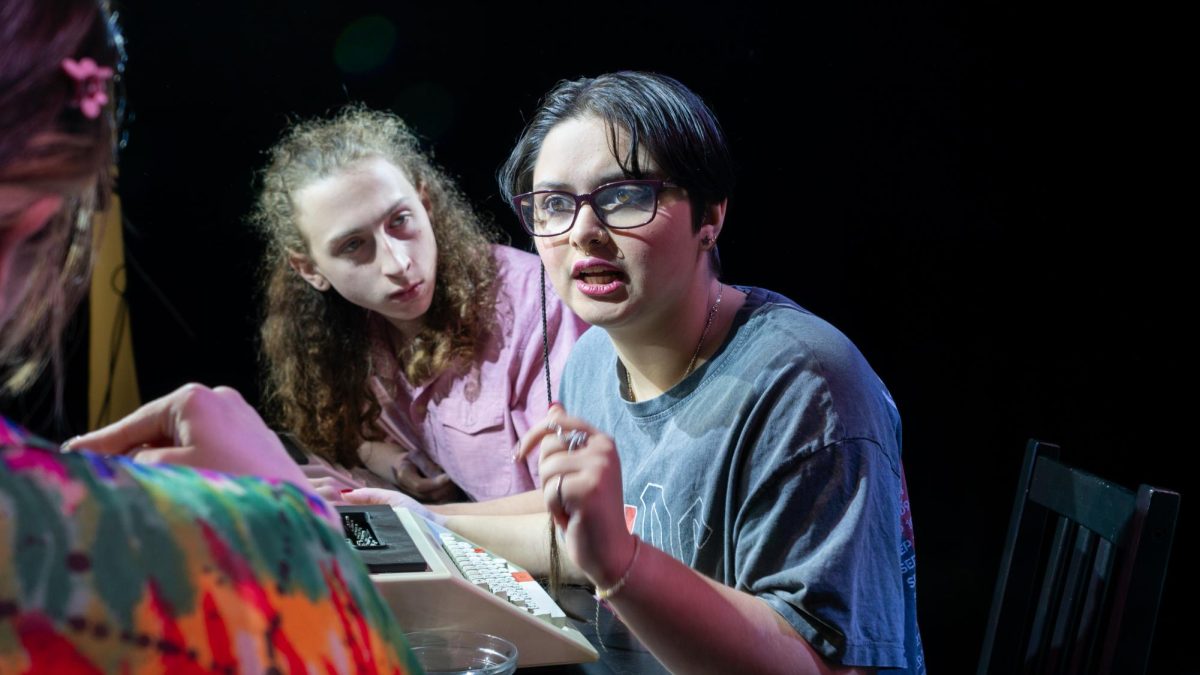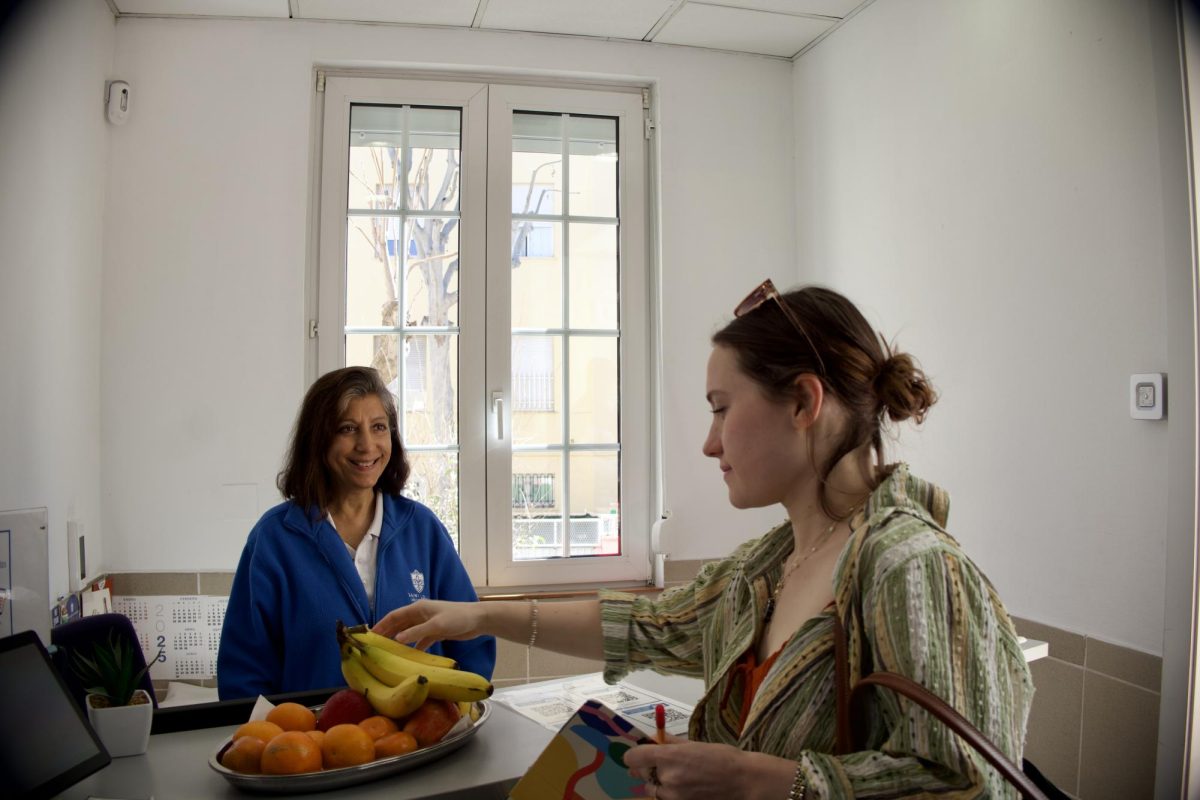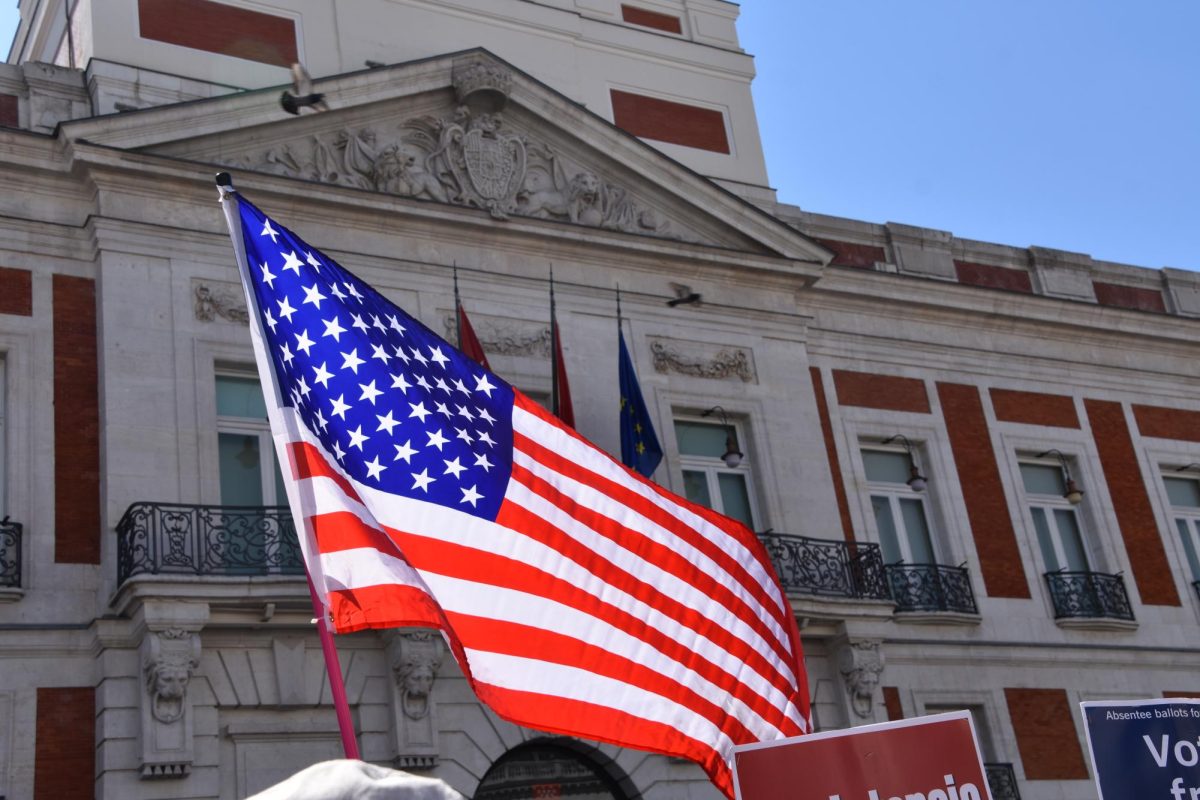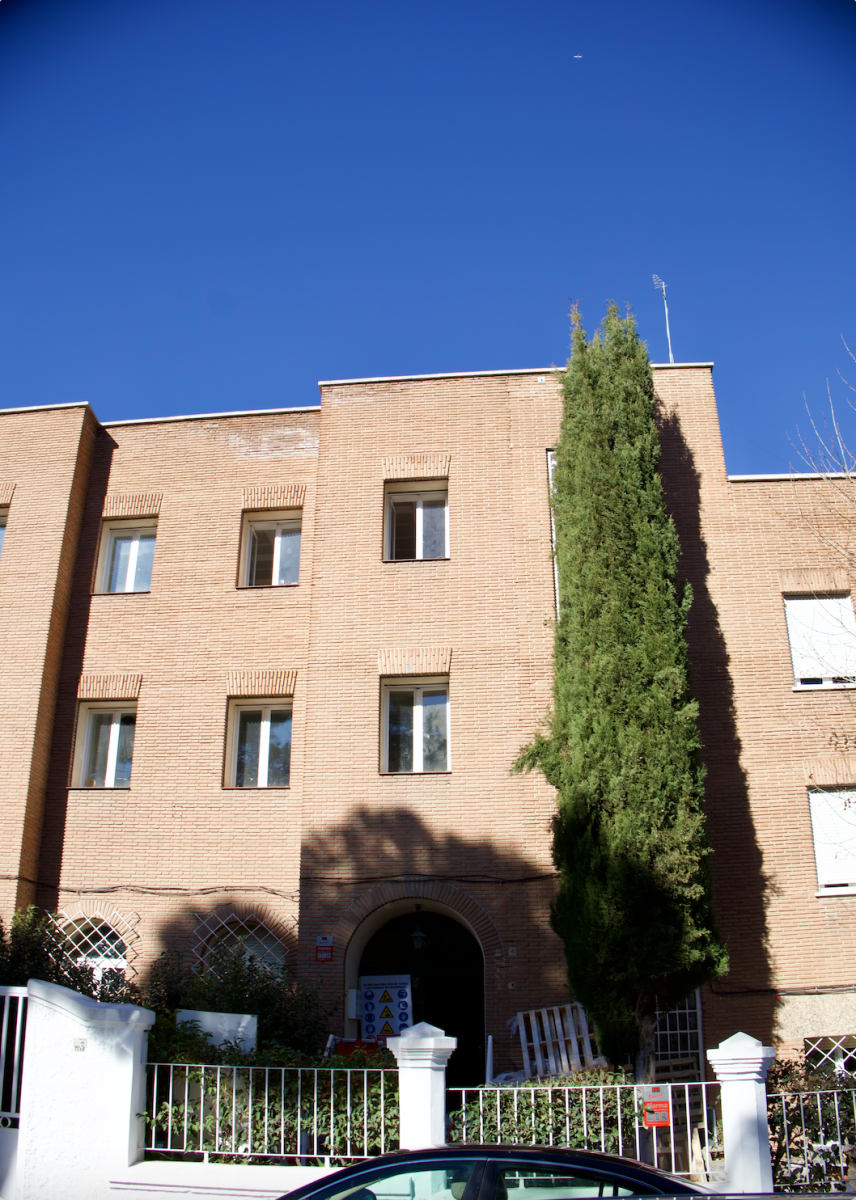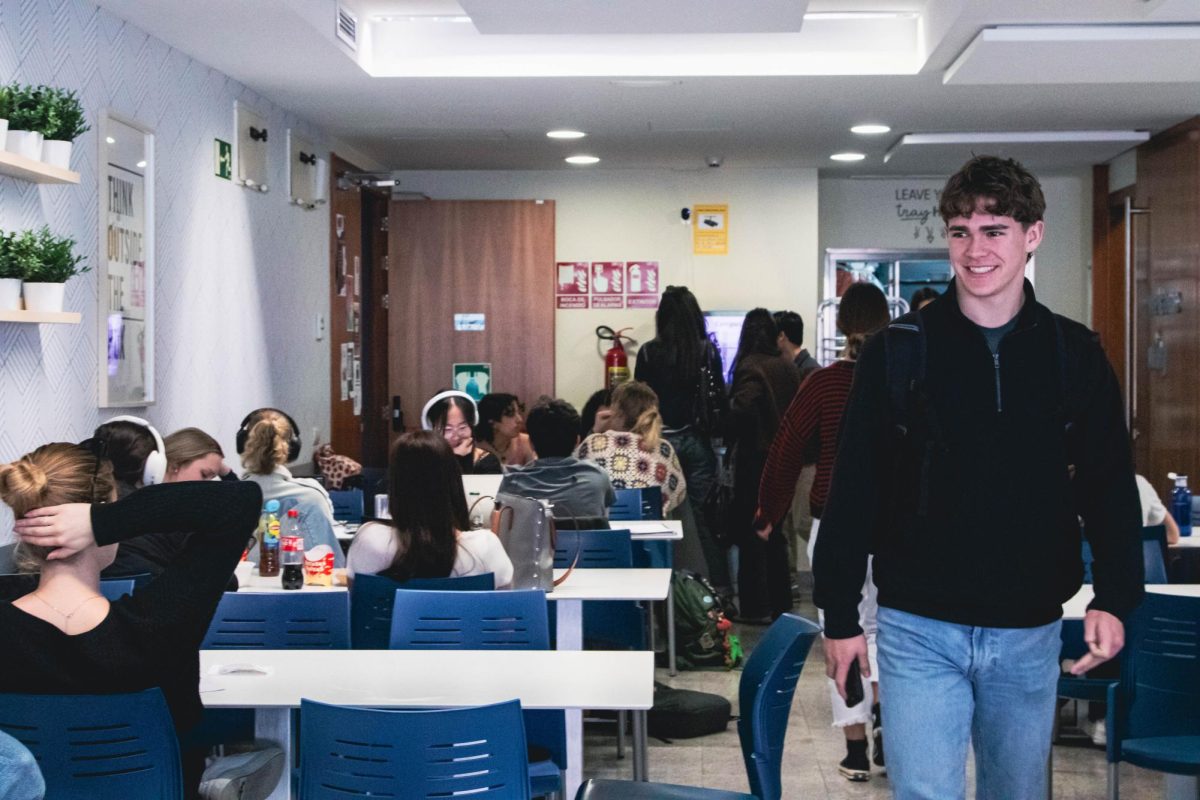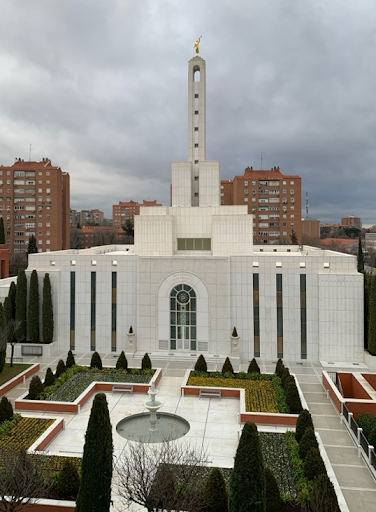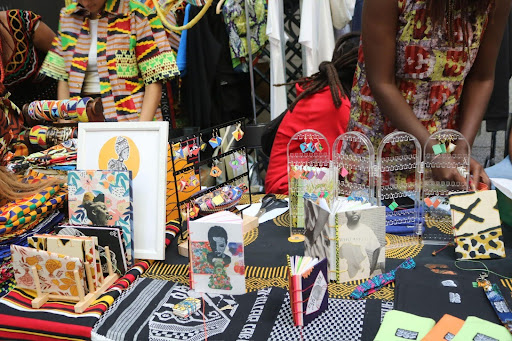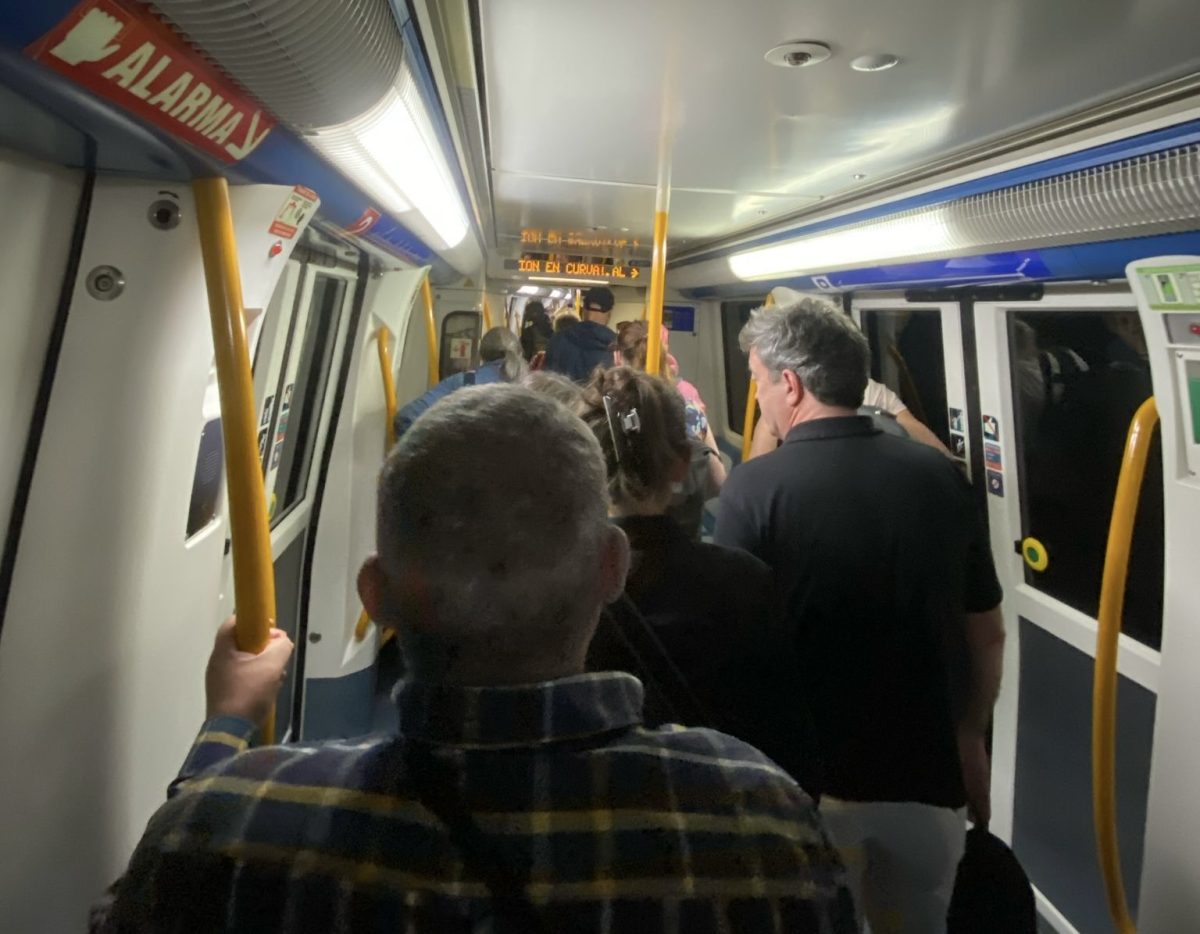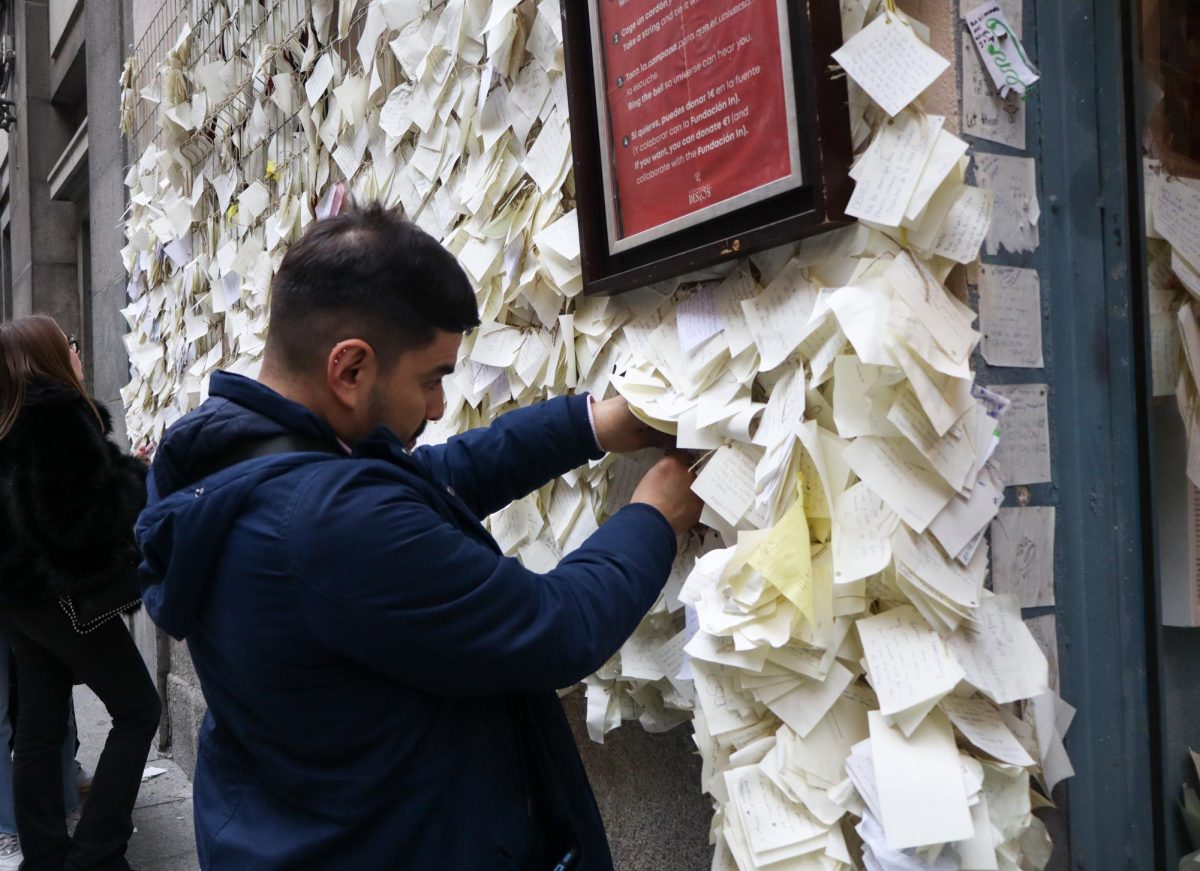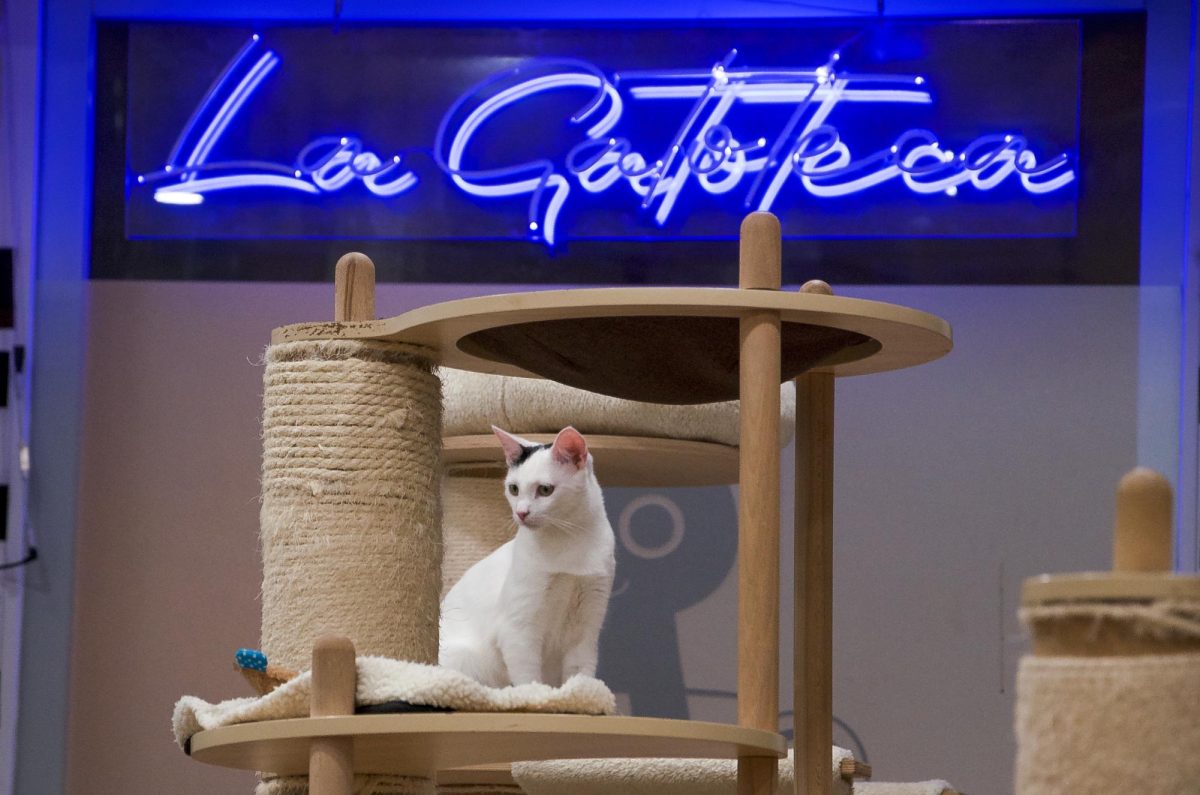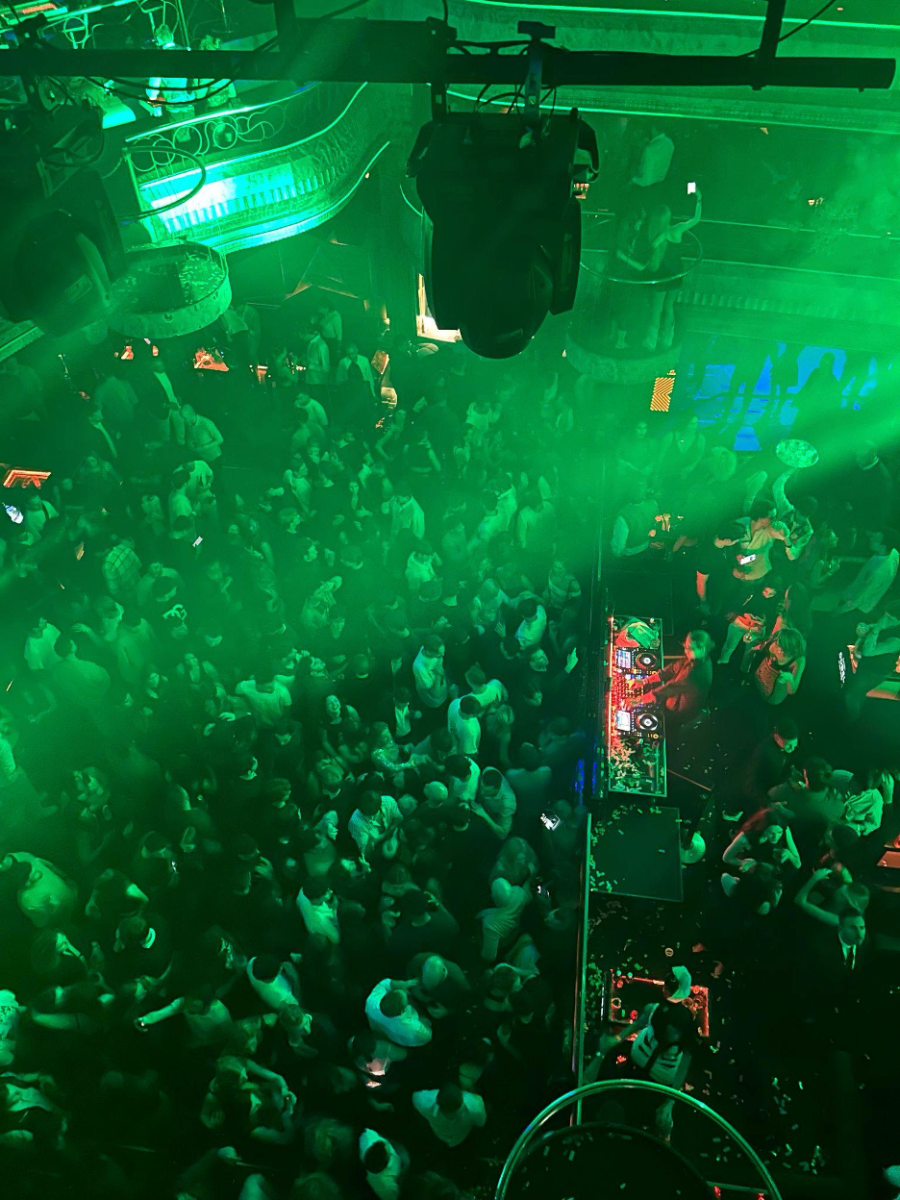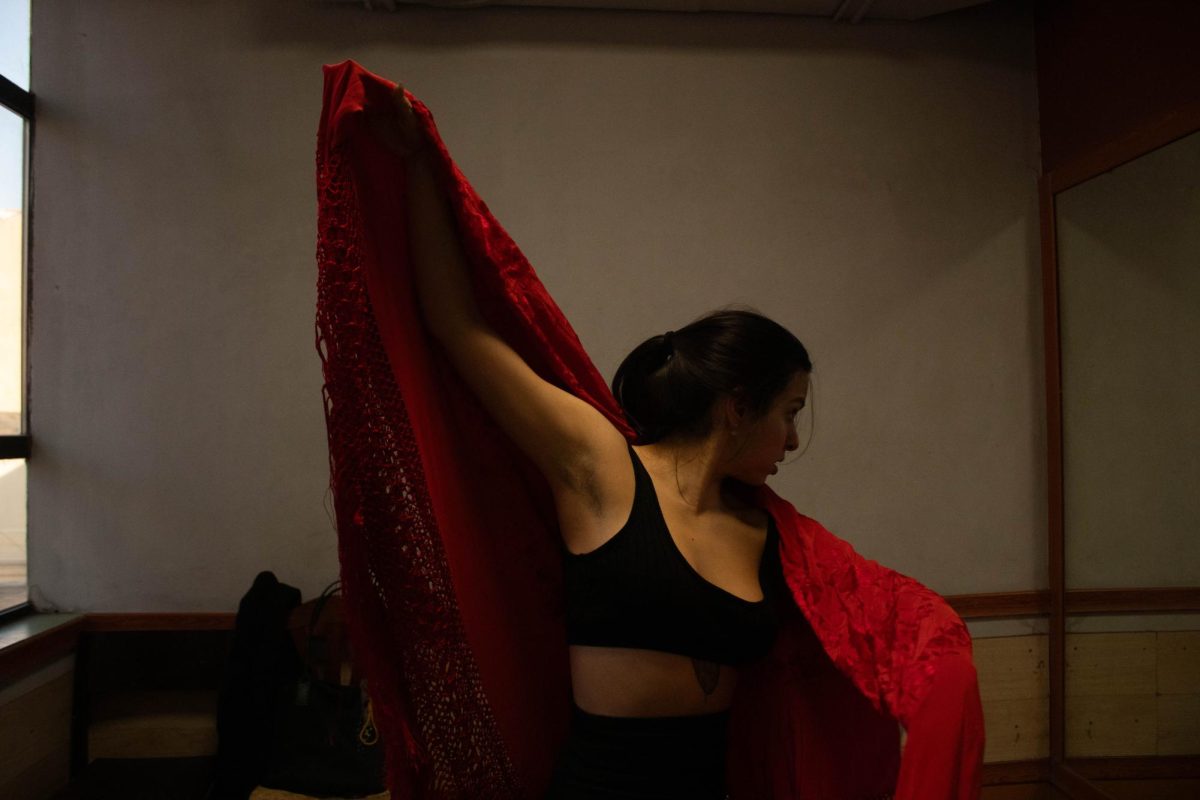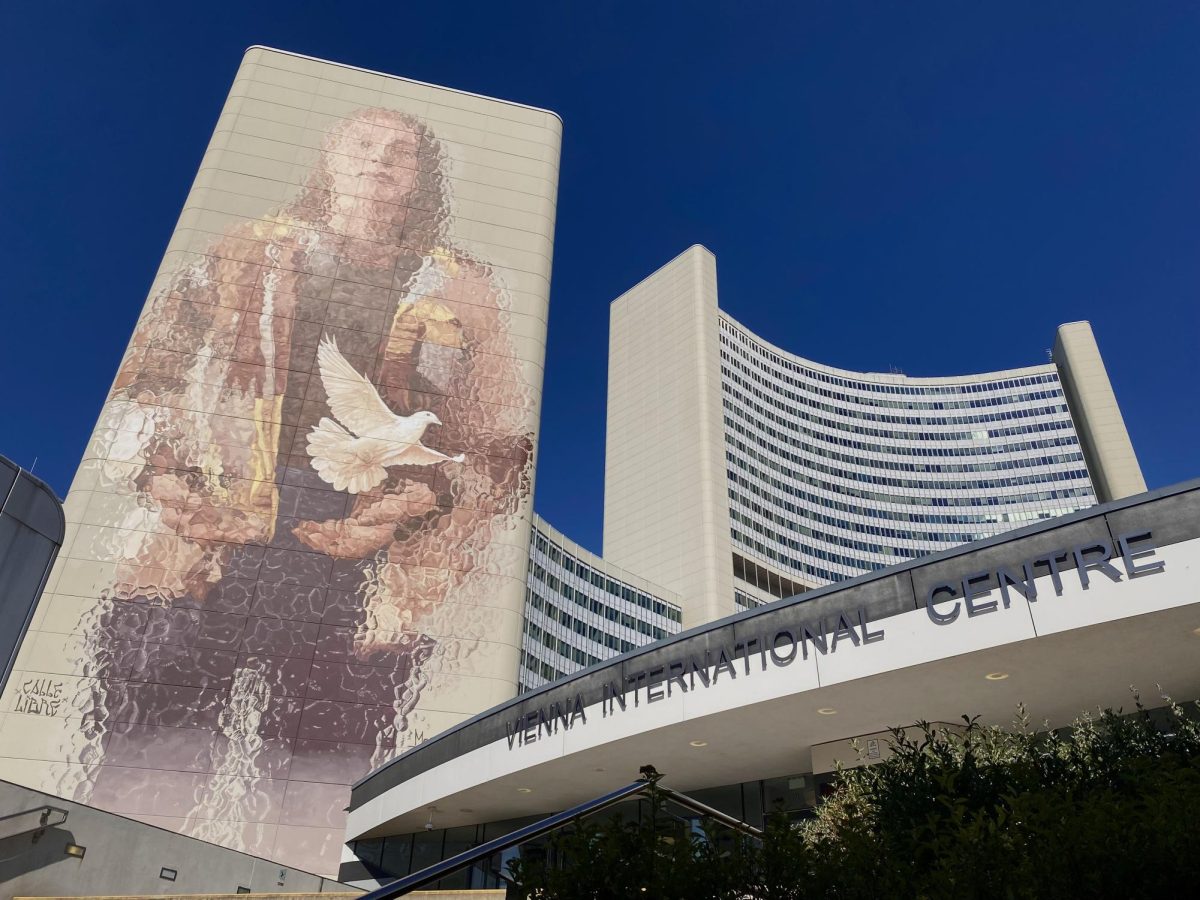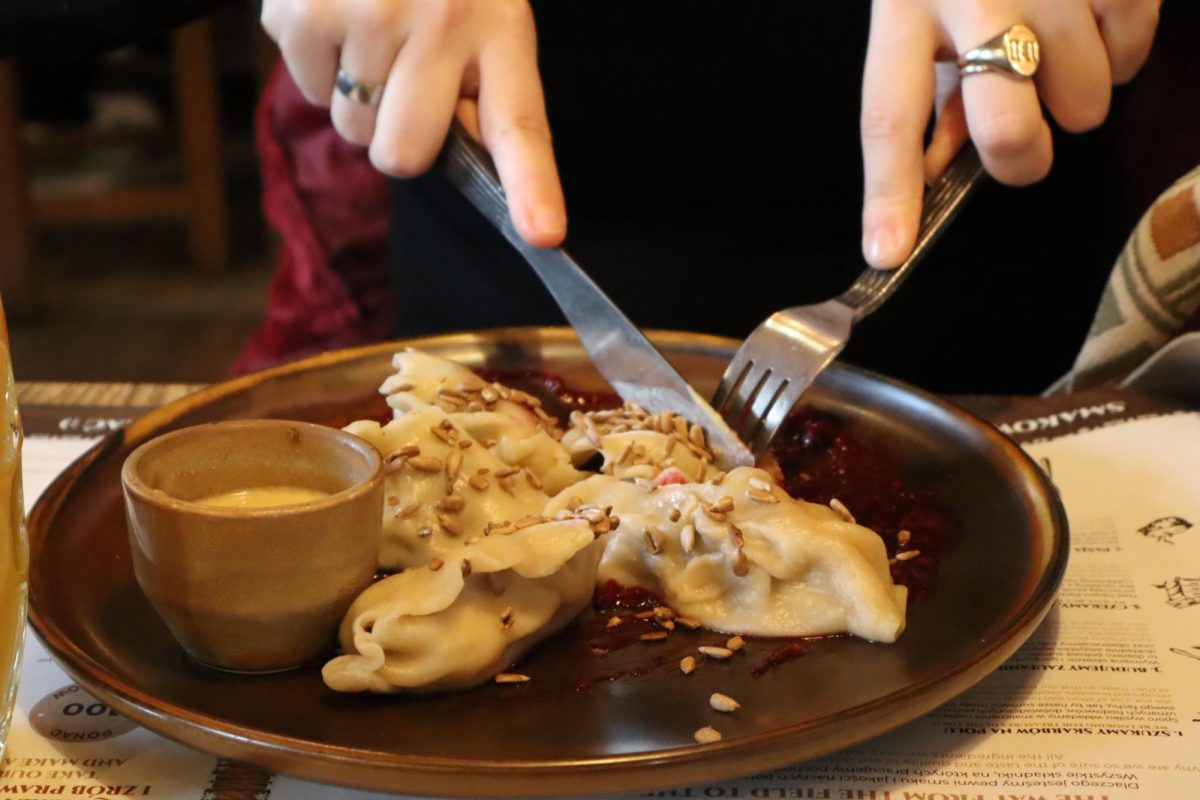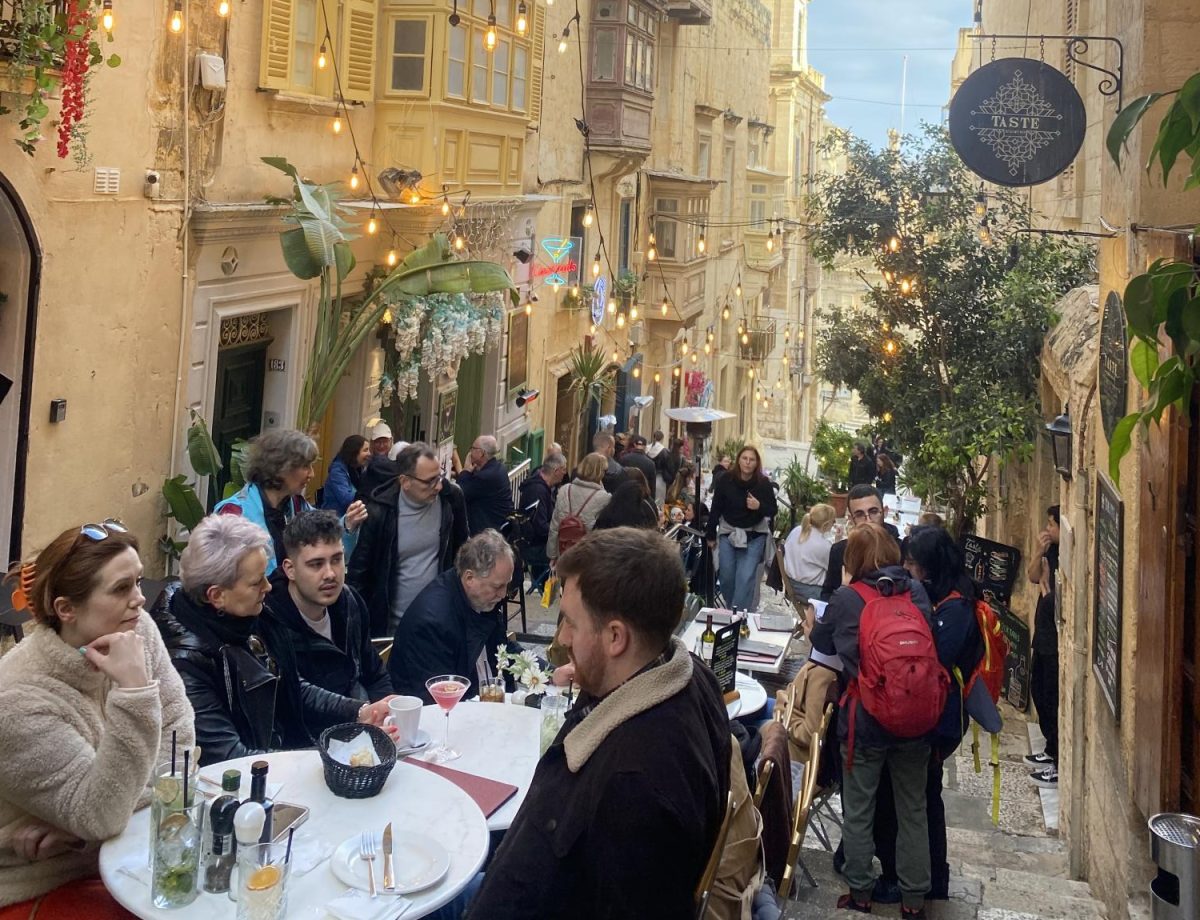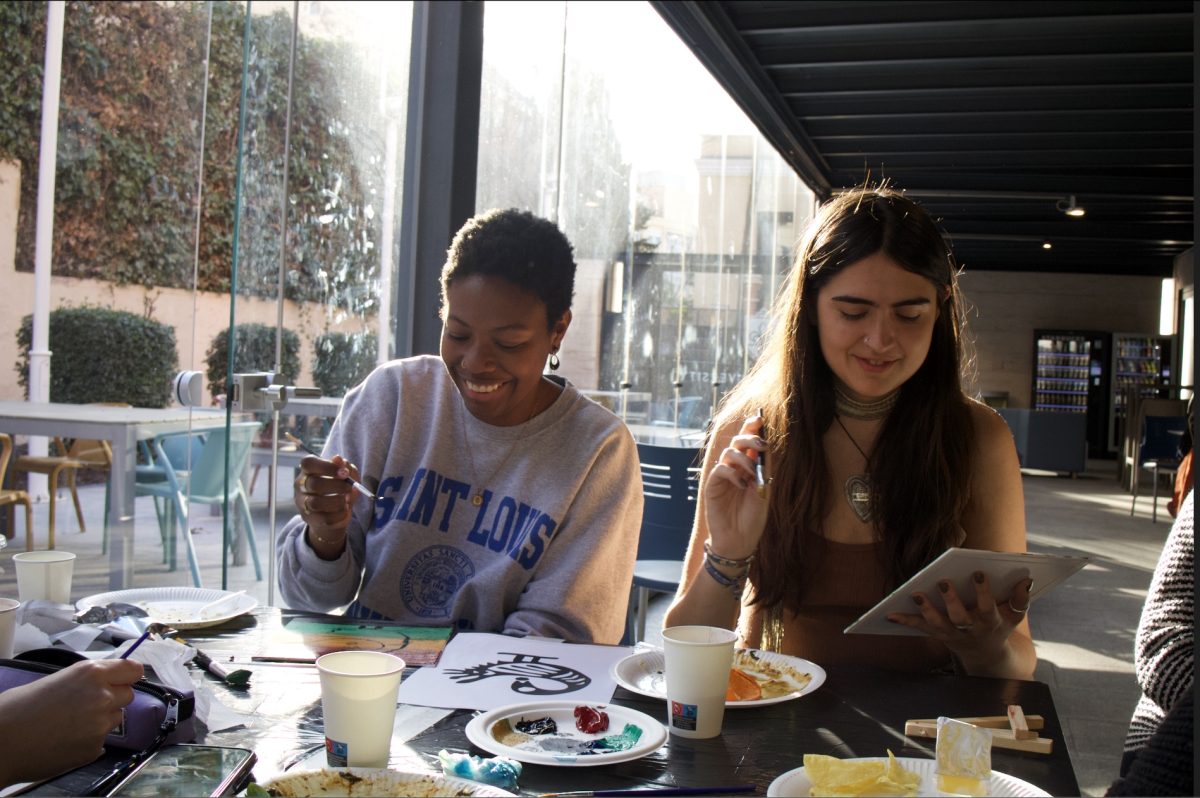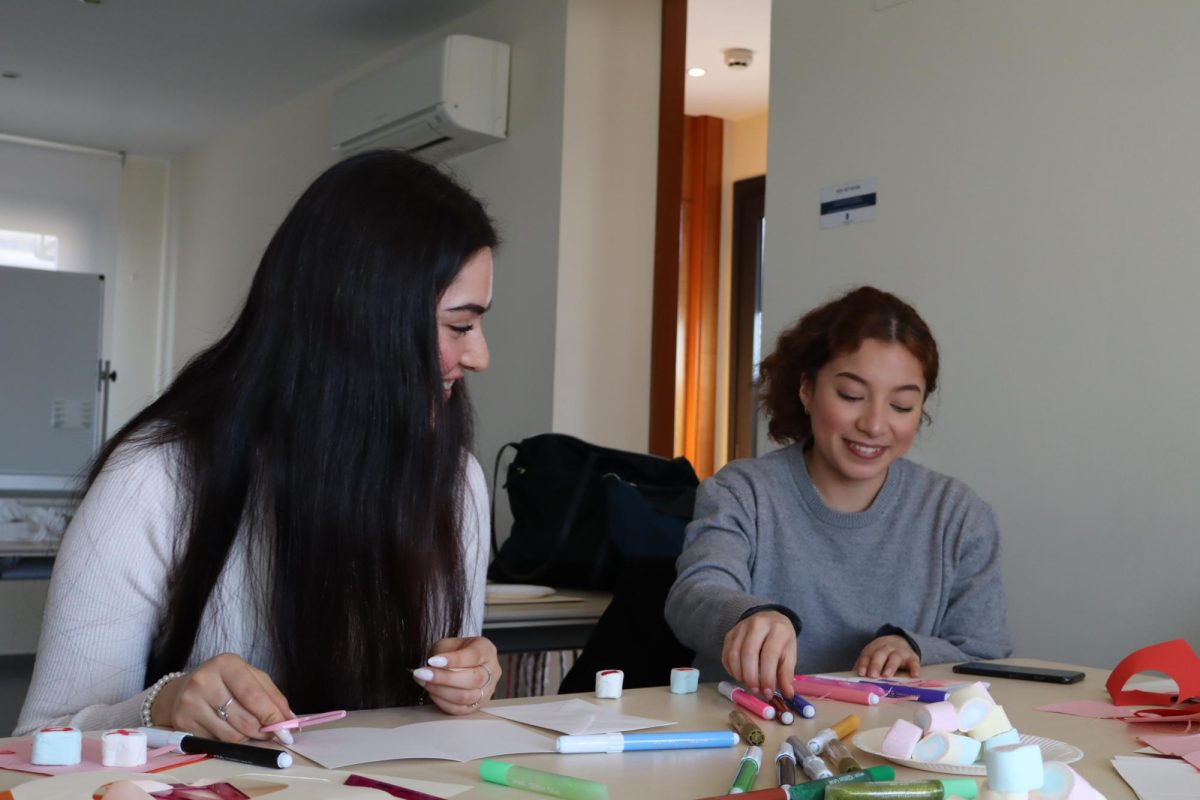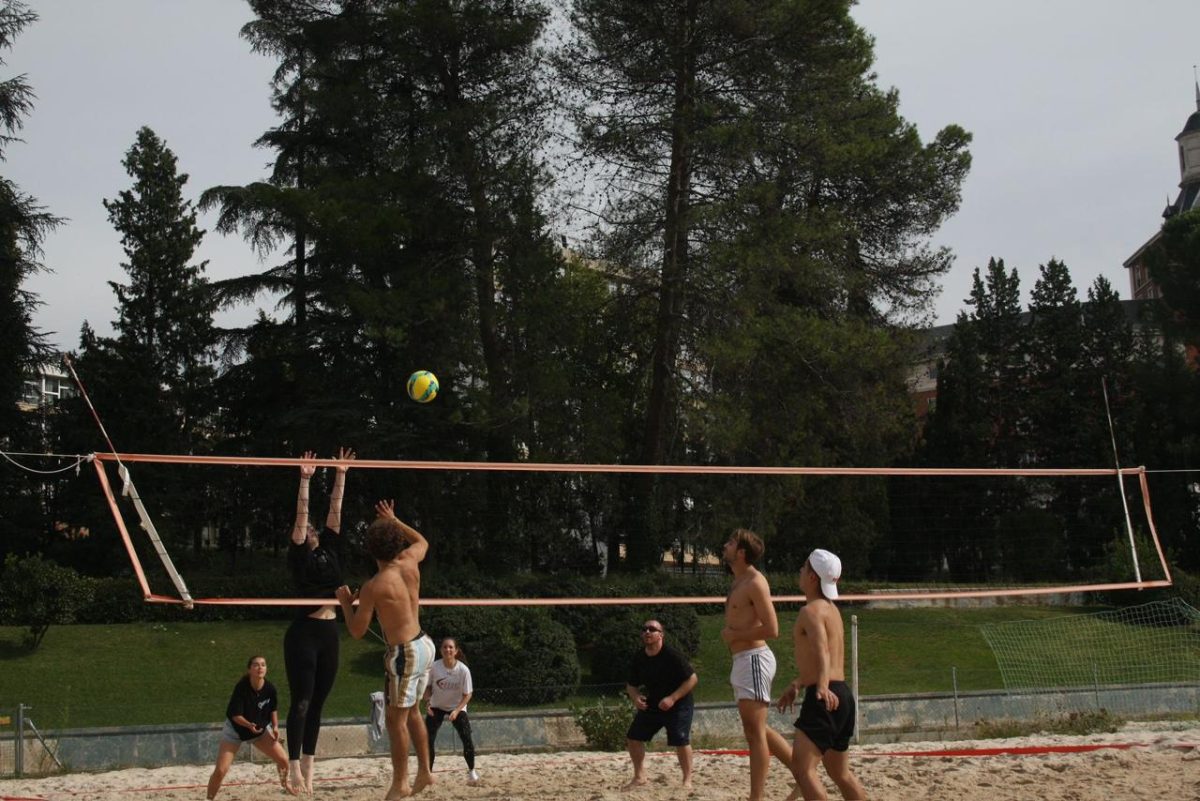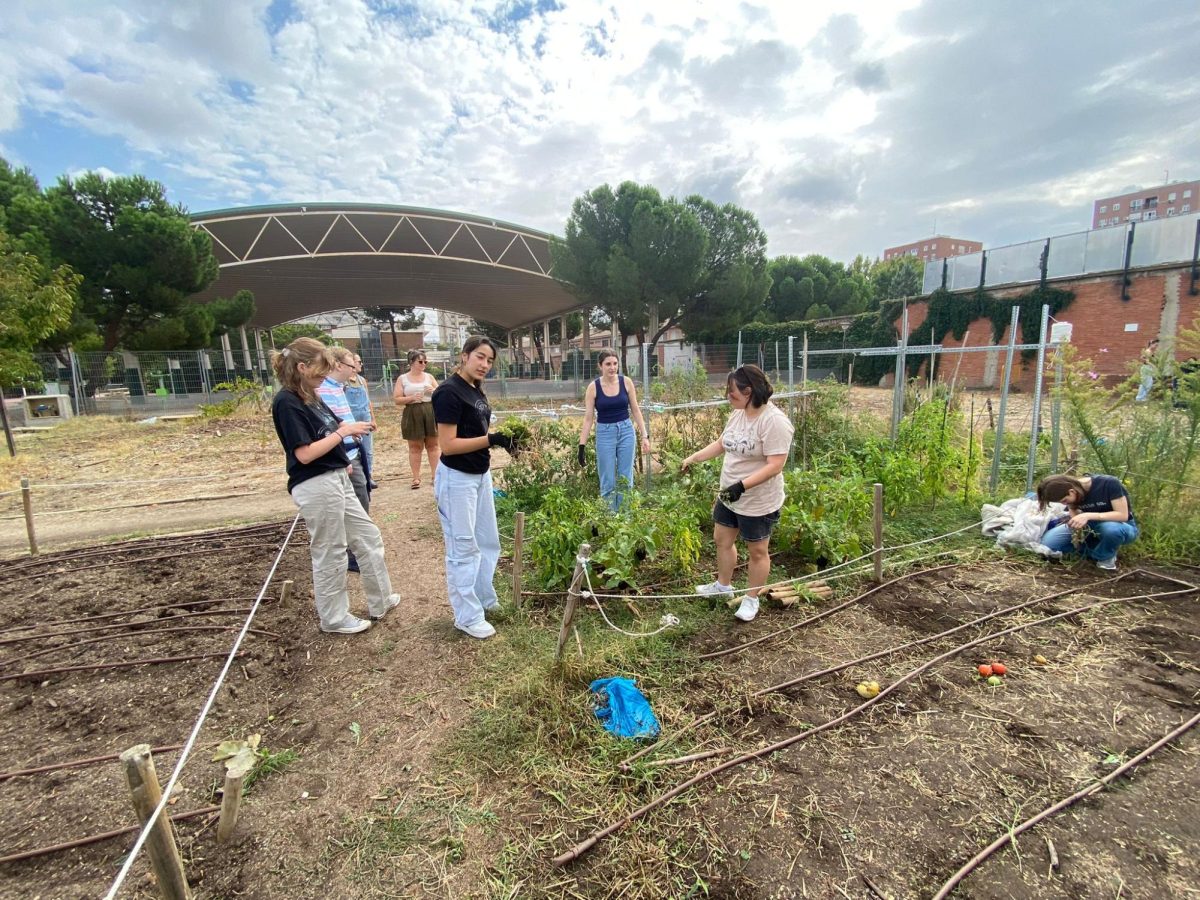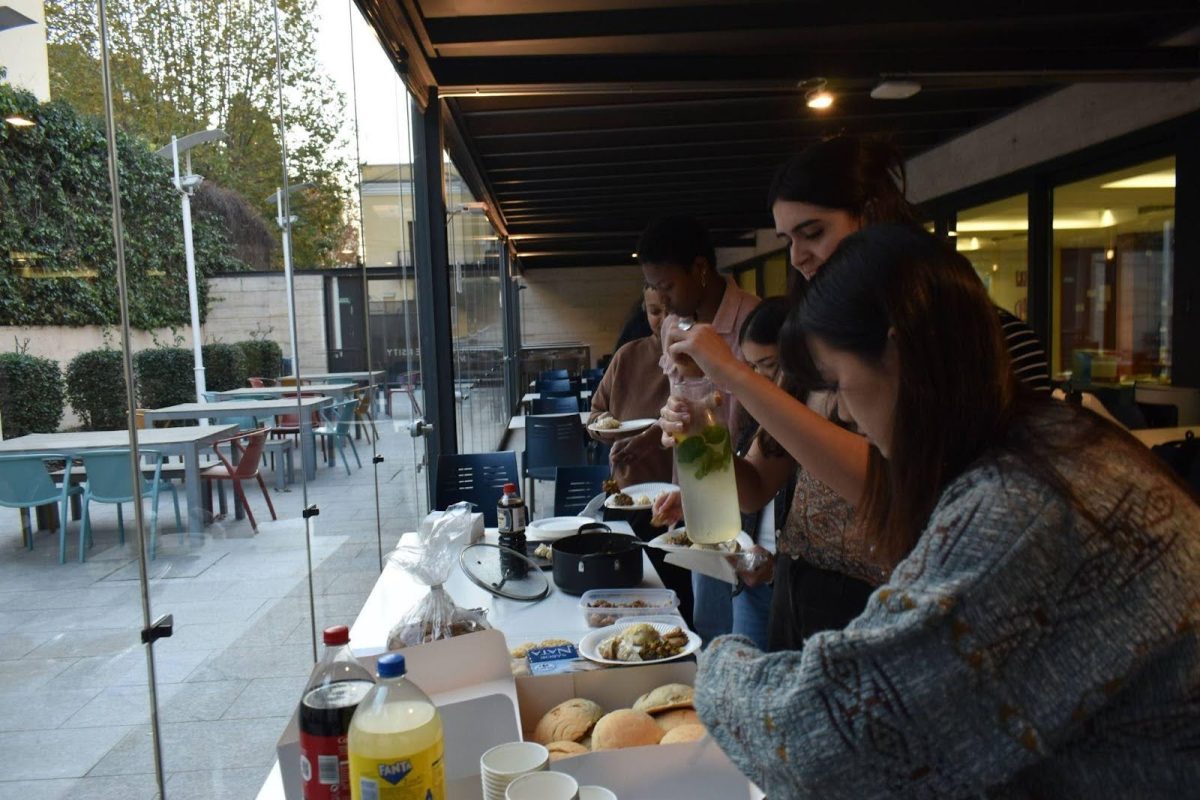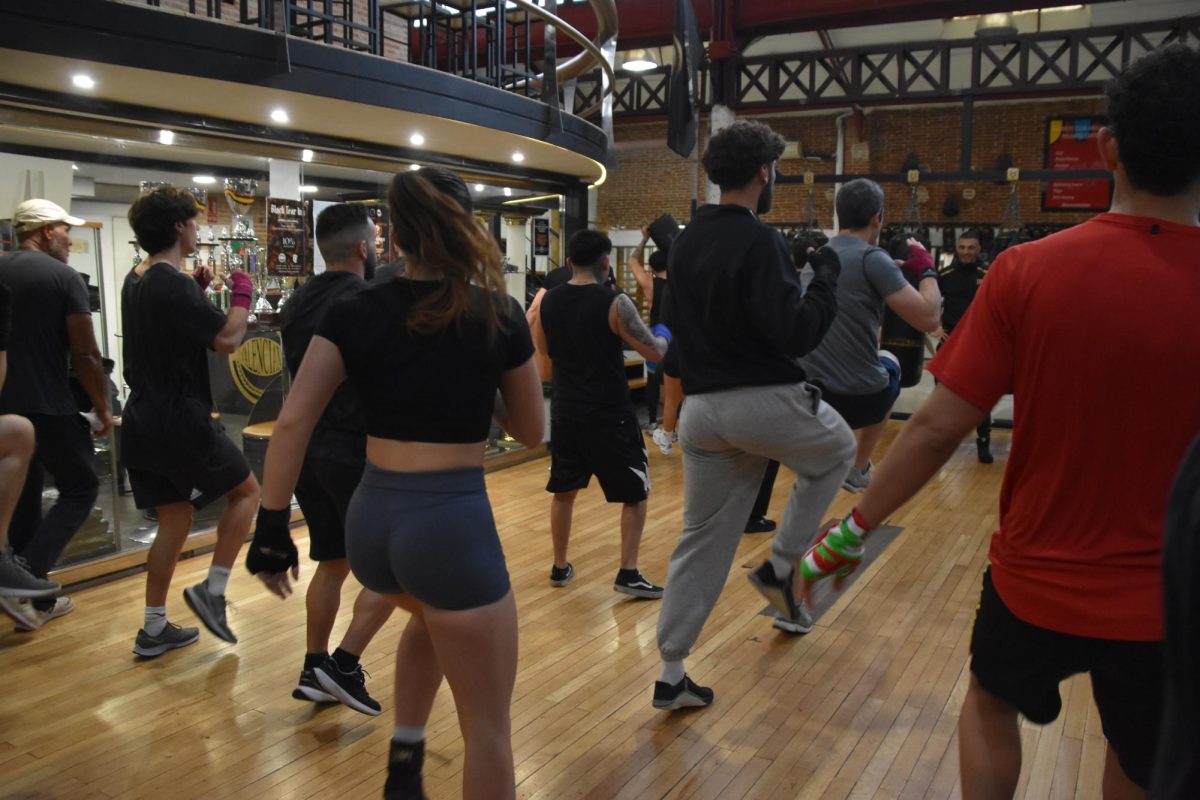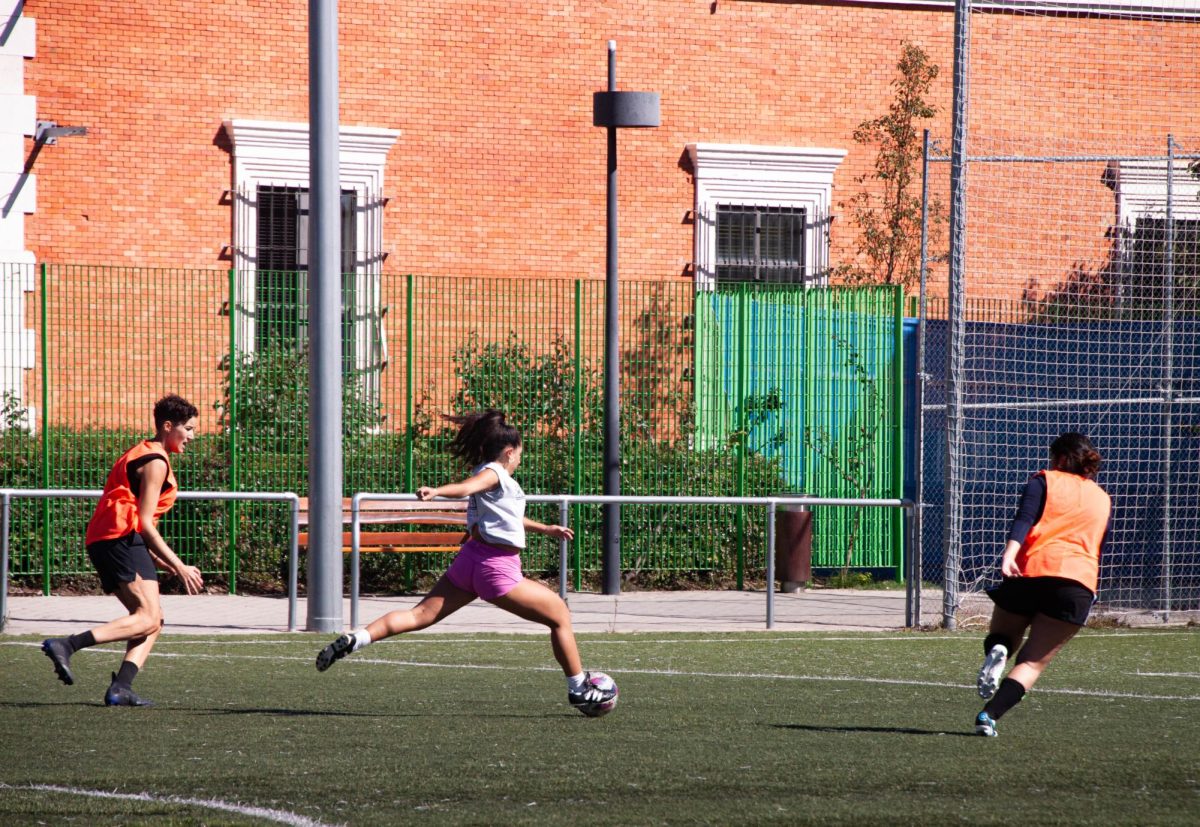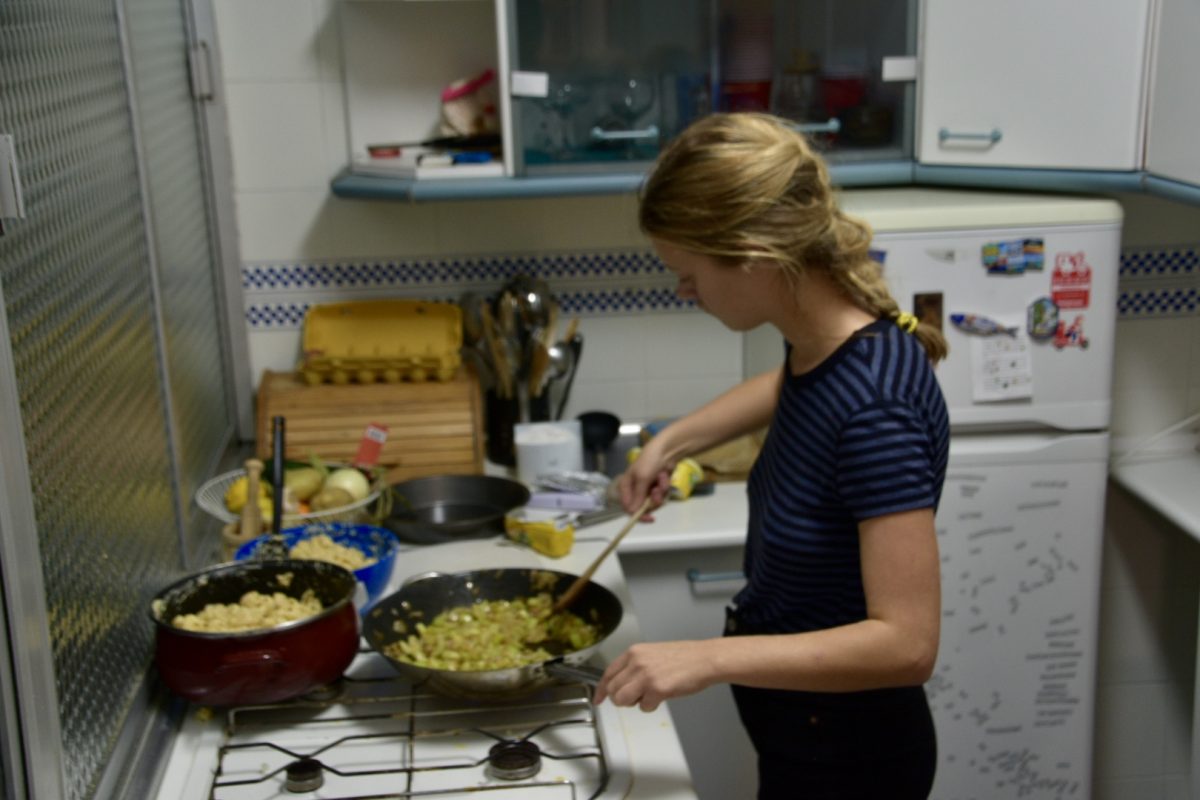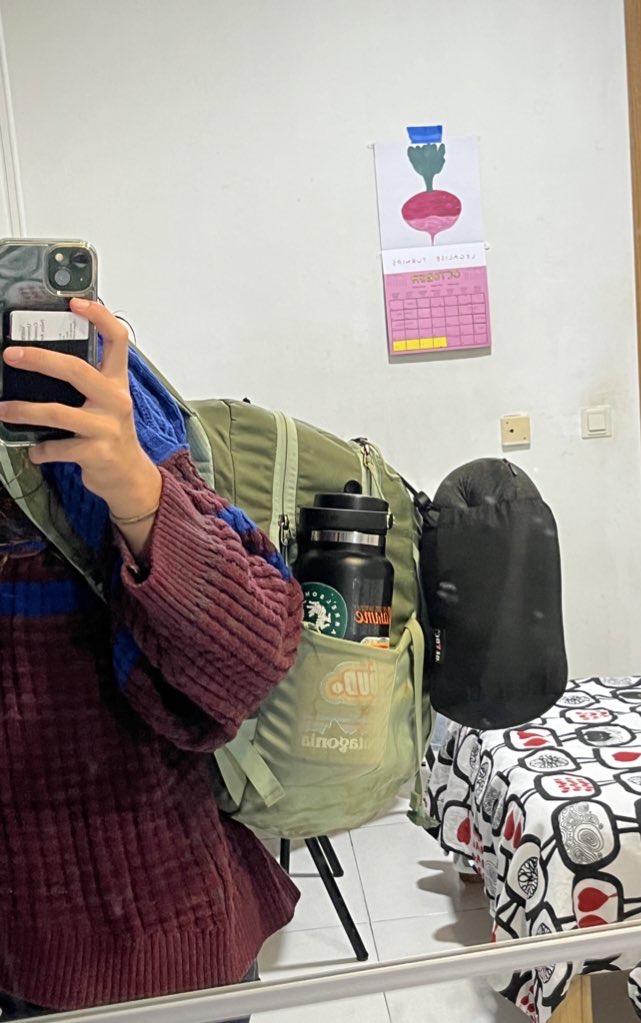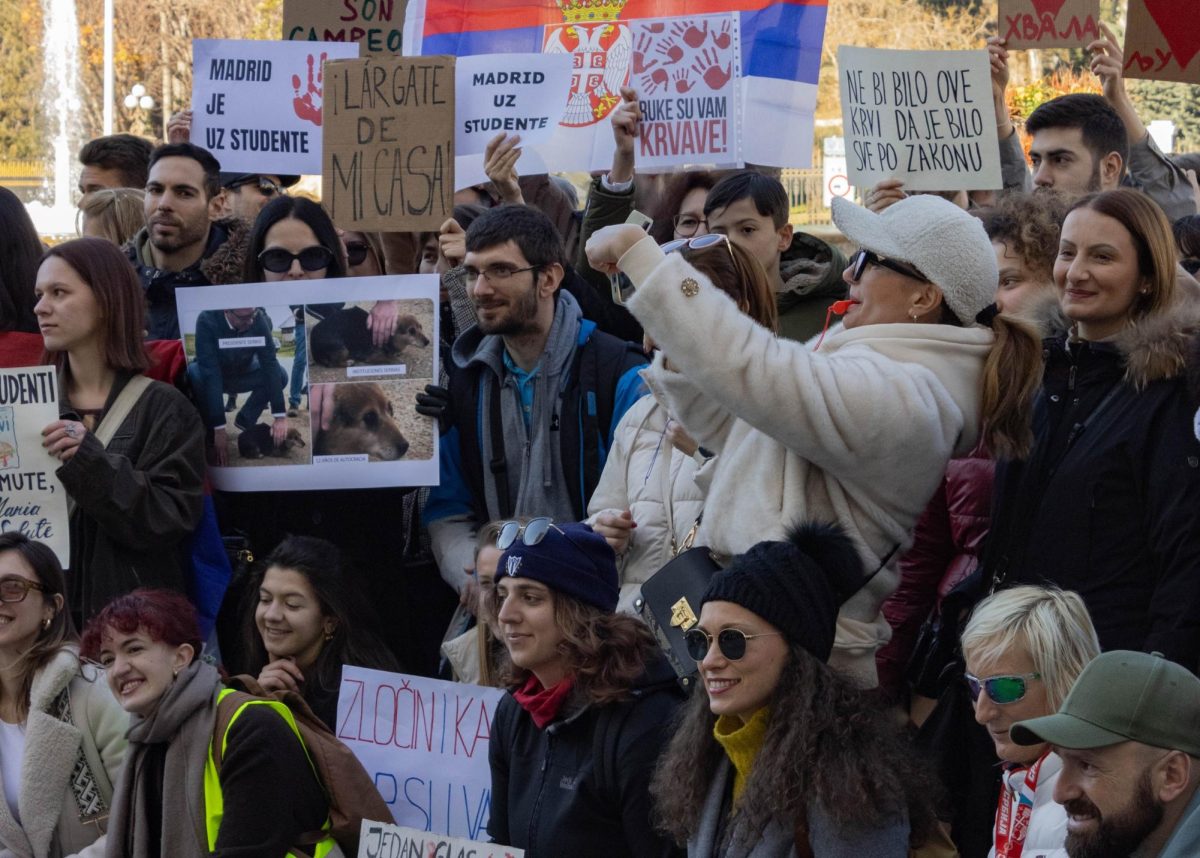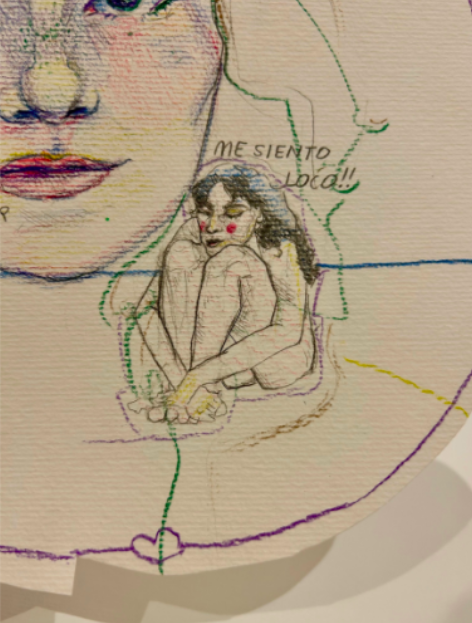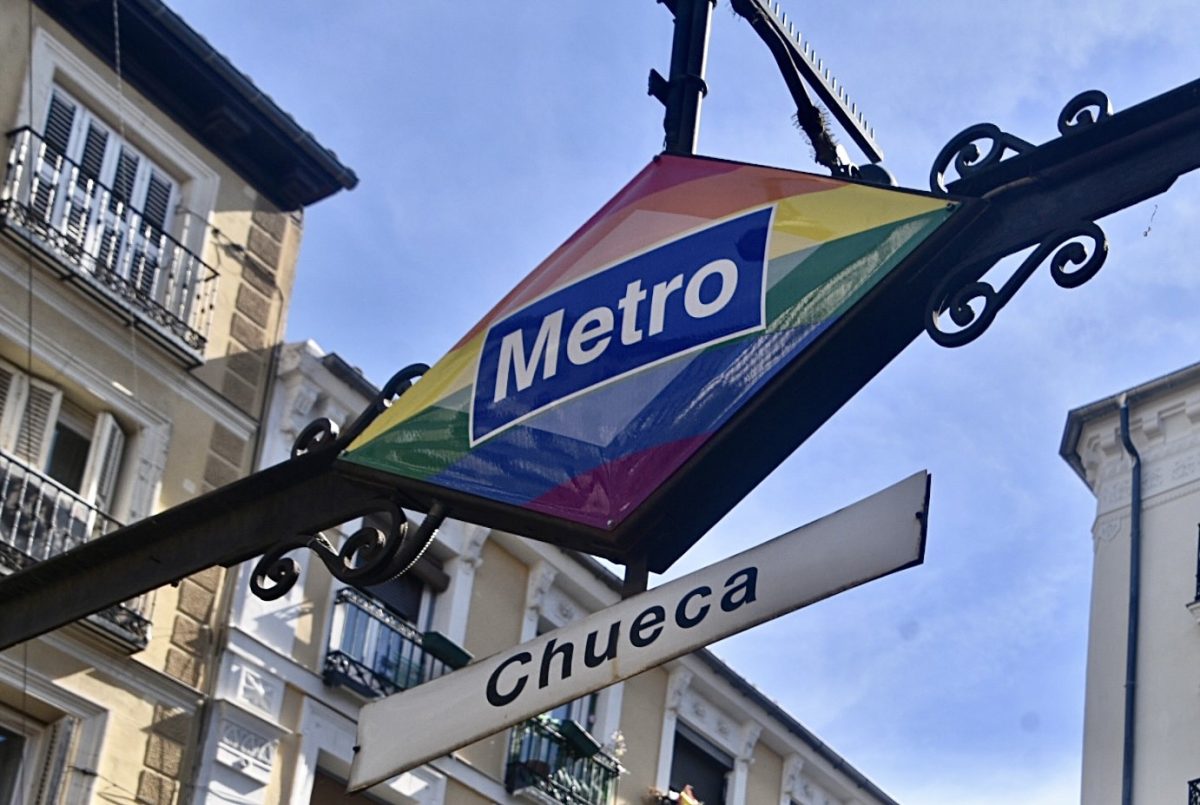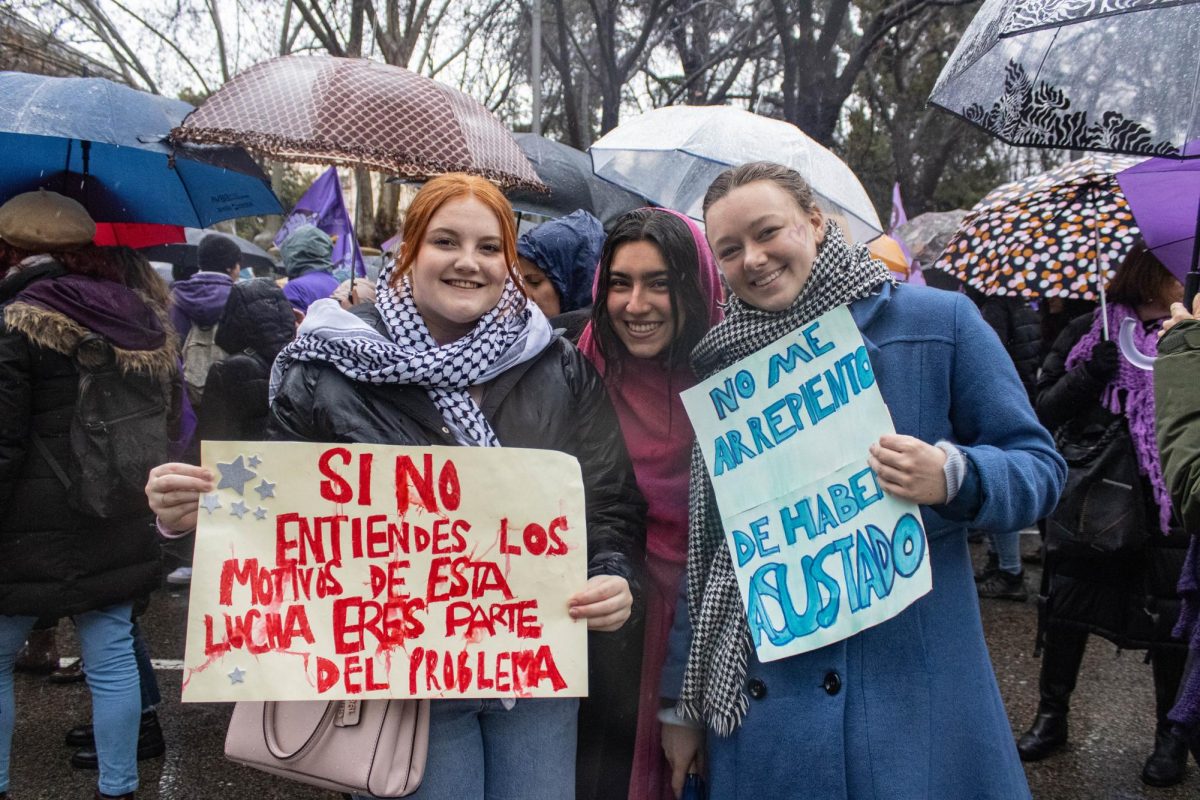The barrio of Chueca peacefully lies right in the heart of Madrid, Spain. Pride flags float gently in the breeze on old balcony rails, with chattering voices of those eating dinner bouncing off the plaza’s walls. The metro station stands tall in the center, boasting the rainbow flag on the metro sign. Around the corner from the metro station, many store windows across the neighborhood display stickers, letting customers know of their LGBTQ+ alliance.
“Living in Chueca has been a huge privilege,” says Saint Louis University-Madrid student Talaith Campbell. “It’s likely not representative of Madrid as a whole, but I really have enjoyed feeling like a whole neighborhood is protected.”
“In Madrid, I think there is a very clear LGBTQ+ presence, and it is widely celebrated, which is something that does not go unnoticed by me,” says SLU-Madrid freshman Caroline Fields. “I’ve expanded my community by meeting friends and their friends. We all happen to be gay because we attract to each other like magnets on accident.”
Many LGBTQ+ people come to Spain from places with a lower acceptance of LGBTQ+ members, finding comfort in the hopes of finding a group of people with similar experiences and thoughts.
Andrea Delascasas, a current SLU-Madrid student, felt a brand new sense of freedom in moving to Madrid from Qatar, where Delascasas noted that it is a predominately Muslim country where it is often frowned upon to be a member of the LGBTQ+ community.
“It was technically like me being free,” says Delascasas. “I could go out with a partner here and hold her hand or kiss her in public, but in Qatar, I was always worried someone would find out I was gay and use it against my family or me. I had been spat on in Qatar because someone simply had a hunch that I was gay.”
Many of the students at Saint Louis University’s Madrid campus come from the United States, which is seeing more efforts from politicians to suppress youth LGBTQ+ expression. Laws such as the “Don’t Say Gay” bill were created initially and passed in the state of Florida and are growing in popularity in many states across the US.
“In my home country, I felt I had less of a community than in Spain,” says SLU-Madrid student Anna Witthoeft. “I am from Iowa, and queerness is not discussed or celebrated very much, especially in my hometown,” says Witthoeft. However, Witthoeft noted that many people she is surrounded with in her home state support bills such as the Don’t Say Gay bill.
Spain a trailblazer in gay marriage
Spain has been a trailblazer in terms of LGBTQ+ rights for its citizens. In 2005, Spain became one of the first countries in the world to legalize gay marriage. As a result, for many students and others alike, school and Madrid have become a place for people to express themselves as members of the LGBTQ+ community safely.
The potential for growth regarding LGBTQ+ equality is anything but limited. New legislation within Spain continues to further this growth, with laws passed from the current political party with a majority in the Spanish Parliament, Partido Socialista Obrero Español (Spanish Socialist Workers’ Party).
Most recently, laws have passed allowing transgender people to self-identify from the age of 16, with conversion therapy banned in the country as well.
“My biggest hope in Spain is the ability to adopt and more access to lesbian reproduction methods,” says Campbell. “I grew up with the understanding that my sexuality would not hinder me from having children, and in Spain, there’s not equality to adopt.”
“I would love to see more LGBTQ+ political representation,” says Fields. “It doesn’t necessarily need to drive their whole campaign, but just to have it be a part of their identity. It would make me more hopeful to see where things are going.”
According to a European Agency for Fundamental Rights (FRA) survey, fifty-three percent of Spanish respondents consider themselves open or very open regarding LGBTQ+ acceptance. Another forty-three percent feel that LGBTQ+ prejudice has dropped throughout the country in the past five years.
Although Spain is often outwardly viewed by many as progressive in terms of LGBTQ+ equality, many members of the community feel as if people are open about the topic in public, but behind closed doors brings a different story.
“When I was sixteen living here on exchange, my host family said they didn’t want their daughter dating another woman,” says Witthoeft. “Now, three years later, I think their minds have opened up because their oldest daughter is in a lesbian relationship.”
“Still some backlash”
“There’s definitely still some backlash,” says Olivia Wendel, a Saint Louis University’s Madrid campus student. “There was a pride flag on my balcony, and it fell off one day when I came home, and it had been burnt with a lighter.”
Despite these instances, efforts to create a more accepting environment are happening not just on a large scale but also locally throughout Madrid. Chueca continues to be a flourishing neighborhood. New LGBTQ+-friendly groups, such as Lady’s Lab, have begun to pop up recently.
Lady’s Lab hosts monthly parties throughout the city of Madrid, in which a handful of LGBTQ+ students at Saint Louis University take part. Students that come to Madrid have found ways to find their own communities, in and out of school, whether living in the city for a semester or for years to come.
In 2021, SLU-Madrid founded its first Pride club, which helps make the campus safe for LGBTQ students and promotes greater representation of these students. “We hope that regardless of where people are coming from, they can trust others in the club and feel open to be who they are,” says club leader Ona Alumbaugh.
SLU-Madrid’s Pride club hosts many events for members to provide the opportunity to mingle with one another and find a group of similar people, which can be intimidating as a member of the LGBTQ+ community. They’ve hosted events on campus, such as trivia nights, picnics, and exploring nightlife throughout Chueca.
Aside from hosting fun events, the Pride club aims to assist students who may feel isolated upon arrival to SLU-Madrid and help students who face discrimination based on their sexual identity and lack general trust in the administration.
“I think SLU intends to be a diverse and accepting place, but I don’t know that they always necessarily succeed,” says Wendel. “But I think they do intend on doing that. Unfortunately, I know of people who have felt discriminated against because of their identity at SLU-Madrid.”
In some countries, LGBTQ+ people are gradually given more rights but still face stigmatization.
In the summer of 2021, Declascasas recalls experiencing widespread acts of hate during Madrid’s Pride celebrations from afar. Large groups of people had begun climbing onto other peoples’ balconies with pride flags, quickly ripping them into pieces and throwing them away.
“More laws should be put into place to protect LGBTQ+ people,” says Delascasas. “We might have some of the same rights as heterosexual people, but it can always be better.”
